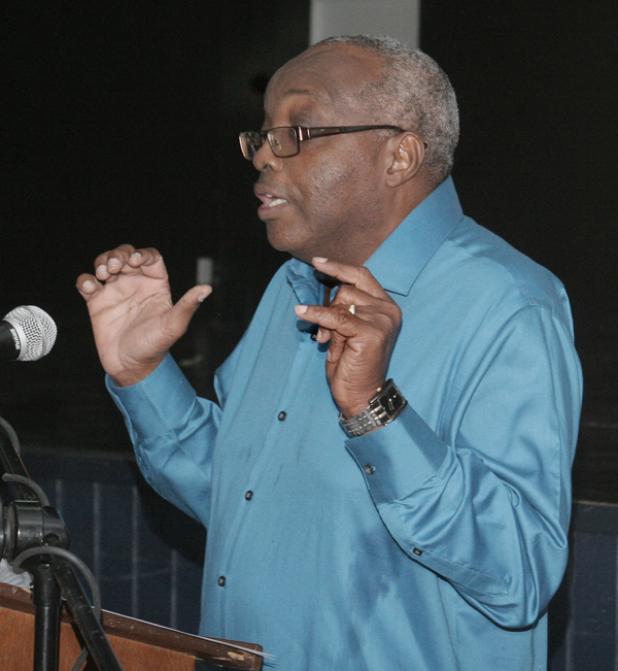
Dr. Henderson Carter
‘Fighting Confederation, Escaping Crown Colony Government’ lecture very informative
Tue, 04/19/2016 - 12:00am
THE recent lecture by Dr. Henderson Carter at the Queen’s Park Steel Shed could be described as an illuminating one.
The lecture shed light on many topics and answered relevant questions pertaining to the subject topic, “Fighting Confederation, Escaping Crown Colony Government”.
This lecture was the third in the 2016 lecture series organised by the Barbados Museum and Historical Society embodying the theme, “Becoming Bajan: The Evolution of Barbadian Identity”.
Carter focused on four core subject areas, which played integral roles.
The first subject area he spoke about was the aim and method of the confederation. This looked at persons who were for and wanted the confederation – confederationists.
The second point focused on the aim and method of the Barbados Defence Force Association in terms of what they envisaged and what methods they used. The third aspect he touched on was the Entry of the Labouring Classes and what they hoped to achieve by revolting in April 1876.
On the issue of confederation or the confederation rebellion, Carter’s thesis was structured around the strength of the defence foundation along with the strength of the planter class and the workers’ rebellion.
He noted, “Barbados escaped from Crown Colony because of the entry of the workers and the subsequent rebellion which ensued, which George Belle called an aborted rebellion. One in which Barbados came very close to removing the planter class.”
He explained, “The reason why we escaped from colony is we have to look at the role of the workers and their entry in rebellion in creating the conditions why Britain backed off of confederation in the period of confederation from 1876 to 1881.”
In reference to the aims and methods of confederation, Carter said: “Confederation was a colonial office policy designed to bring Barbados and the Leeward Islands into one unit under one government because the colonial office wanted confederation to reduce expenditures. They wanted the Caribbean countries in the confederation to share resources and they were confident they would succeed because of the success of confederation in Canada in 1867 and the Leeward Islands in 1871.”
He highlighted that the plan was for one confederation of the Leeward Islands and Barbados. Not only the confederation of the Leeward Islands, but the confederation of all the Leeward islands in the Eastern Caribbean. A task which was to be undertaken by Governor Hennessy.
He mentioned, “The colonial office wanted to introduce a system of confederation and to change the constitution of Barbados to introduce confederation under a strong colony arrangement, departing from the old representative form of government. One that would abolish the elected assemblies – the legislative council and the house of assembly.”
In those days the house of assembly was very powerful and passed legislation affecting nearly every aspect of Barbadian life and the governor recognised that assemblies in the region were very powerful and sometimes obstructive bodies, hence the colonial office wanted to remove the obstruction that the assemblies presented.
A noteworthy point was the aim of the colonial office to change the constitution. They were of the view that if the colonies were to go forward, some financial assistance had to be granted to them. They wanted to have the finance to control and direct the policies under which that finance would lead to some recovery in the region instead of leaving it to parliament.
Carter concluded by making an assessment of the conflict. He sought to show that efforts were made in the 1880’s to stave off crown colony government and confederation. (TJ)
